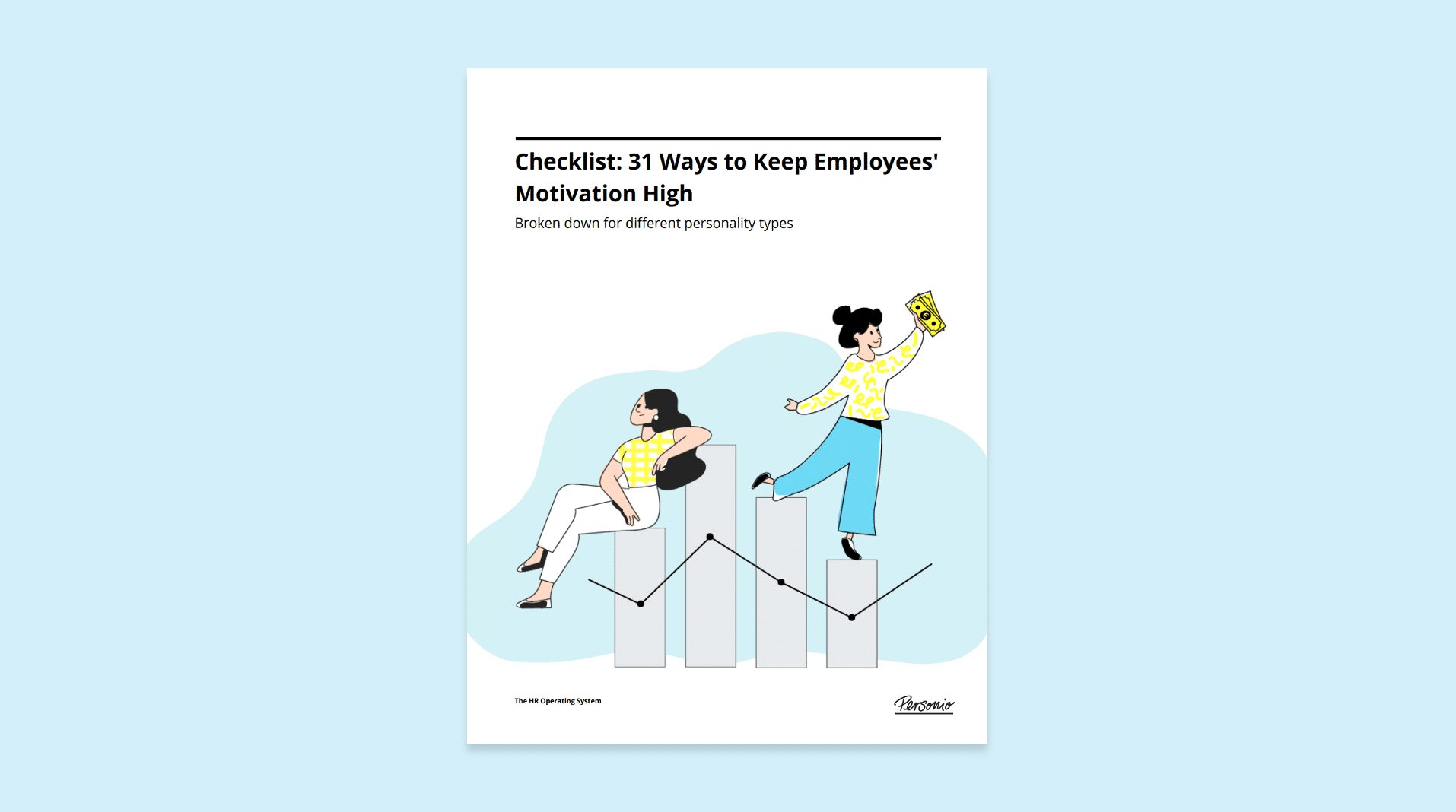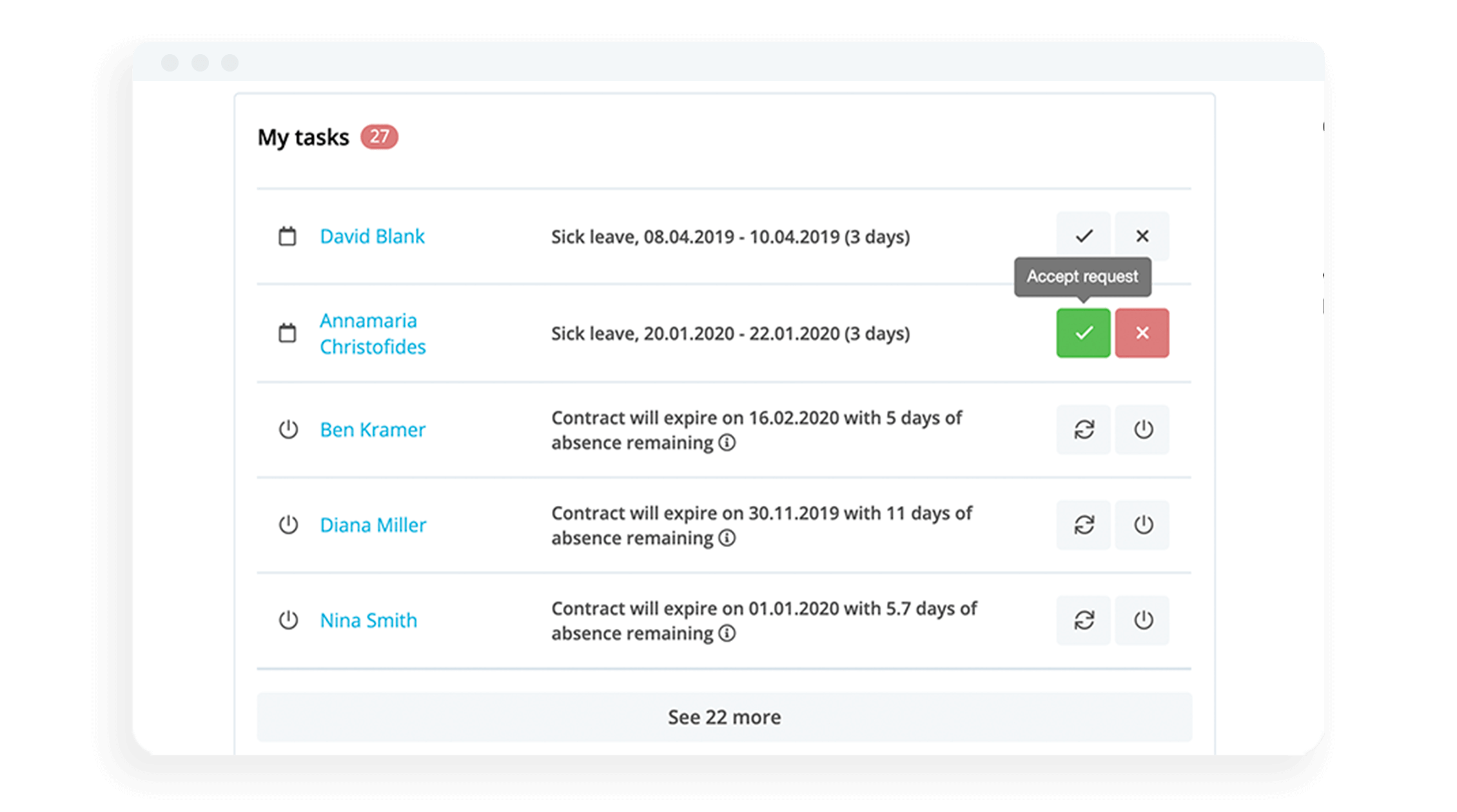Mindfulness: A Secret Weapon for Companies?

We strive to stay physically fit but what about mental fitness and mindfulness at work? Claudia Braun, consultant, and partner at RETURN ON MEANING GmbH, has provided practical tips on how to become more mindful at work while reducing stress in your company, as a whole.
What kind of emphasis is your HR putting on people? Download our guide today.Mindfulness At Work: Defined
Explained in one word, mindfulness means "consciousness". Put simply, it is about being present and aware of what's happening inside and outside. Mindfulness allows us greater freedom of choice in what we do.
A Bouquet of Advantages: Mindfulness in Companies
Conscious perception sounds good but how does it fit into the professional context? Very simply: The focus is on the individual.
According to the study “Stress Management and Mindfulness in the Workplace” by AMA Global, 85% of respondents say that mindfulness helps them deal with stress at work.
But mindfulness is also very relevant for employees and managers who say stress isn’t a problem for them by increasing the ability to concentrate and feel empathy. It also improves memory and creative problem-solving skills.
Mindfulness Offers Several Benefits to Companies:
If employees are better able to deal with challenges at work in a more relaxed manner, they approach tasks with higher motivation and show greater commitment. This in turn contributes to employee loyalty and employer branding.
Greater concentration, creative problem-solving skills, etc., increase the ability to solve complex problems.
Takeaways for HR Professionals:
Mindfulness contributes directly to employee productivity, because according to the study “Stress Management and Mindfulness in the Workplace”, 82% of respondents say that mindfulness techniques make them more productive at work.
Mindfulness is not a self-runner, but needs attention starting with management and ending with one person who incorporates mindfulness into the company culture.
Mindfulness should not be a one-time project, but should ultimately be part of the cultural DNA of the company.
Implementing Mindfulness At Work
Some or even most employees have likely had limited exposure to mindfulness and may be hesitant to participate in mindfulness workshops. When introducing the topic, it will help to explain that this is a scientifically sound method used by top athletes and other professionals to improve performance.
Being very clear that mindfulness is about training the mind to experience the world more positively – and therefore has a huge impact on performance – will help get people on board to support the program.
Mindfulness should be a pull instead of a push.
Being mindful can’t be forced. The desire to be more mindful has to come from employees themselves.
Claudia’s tip: Incorporate mindfulness into leadership training and development discussions. Usually the interest in mindfulness comes naturally.
Checklist: Employee Engagement & Motivation

Every employee is unique, and what motivates them is no different. Download our checklist for a range of ideas and strategies to keep employee motivation and engagement high.
Download Now3 Tips For Everyday Mindfulness
First: Meditate
Even if most people think, “I don’t have time for this,” meditation is incredibly effective at promoting mindfulness. The trick is to start with a small hurdle and increase gradually.
We don’t meditate for the sake of meditation, but for what happens in everyday life.
Start with one minute per day and then slowly increase to three, five, etc. minutes. For example, breathe in and out six times and you have already meditated for your first minute.
By the way: Apps can also help with meditation, e.g. Calm.
Second: Make an everyday thing mindful
To make meditation a habit, it helps to start with mindfulness for everyday things.
Take a thing that you do anyway and do it consciously. This could be your walk to get coffee or your morning shower. Be aware of yourself and your environment in a non-judgmental way.
Third: Focus on the positive
We tend to focus on things that are difficult and unpleasant and ignore the more positive aspects. Put your focus back on things you are grateful for.
Martin Seligman, a renowned U.S. psychologist, presents an exercise for this: In the evening, write down the three most beautiful things that happened during the day. You literally visualize the positive and see your world and yourself with different eyes.
Mindfulness At Work: Just Start!
Breaking habits has never been easy for anyone. That’s why Claudia Braun’s last tip is: Do it! Try it out and see what mindfulness does for you.

About Marina Buller
Marina is Content Marketing Manager at Personio and has dedicated herself entirely to HR and recruiting topics. After completing her master's degree in Lund, Sweden, she gained HR insights while working at XING. She now incorporates this experience into her texts - always following Personio's motto of "simplifying HR work".
